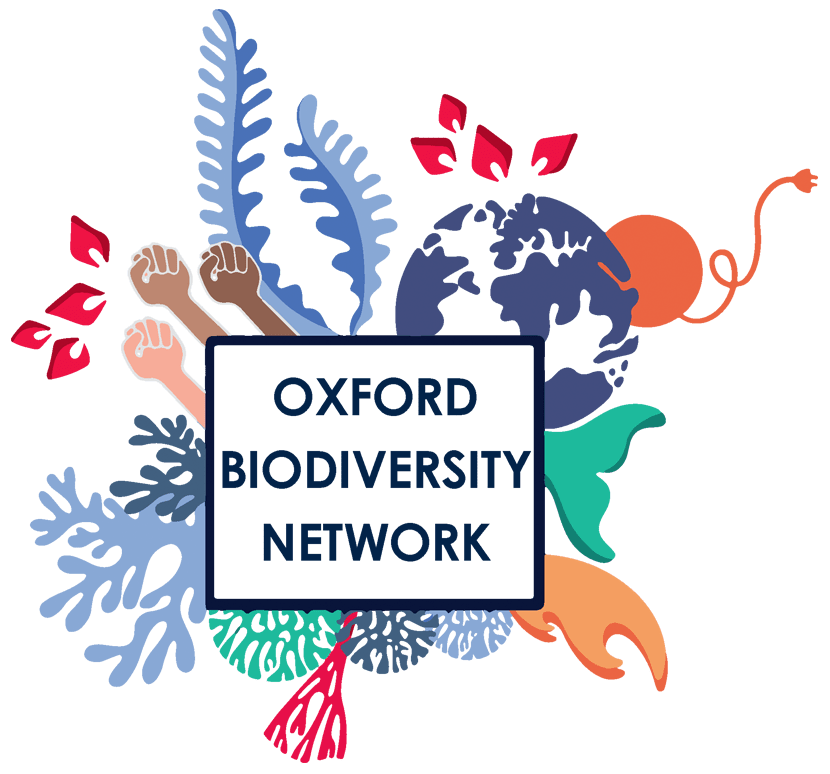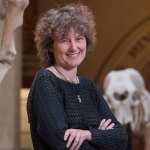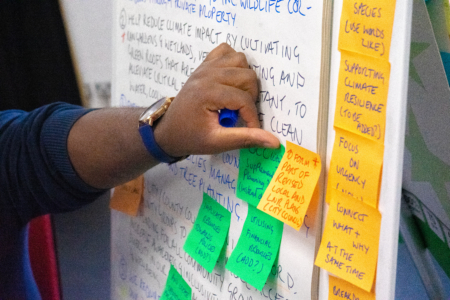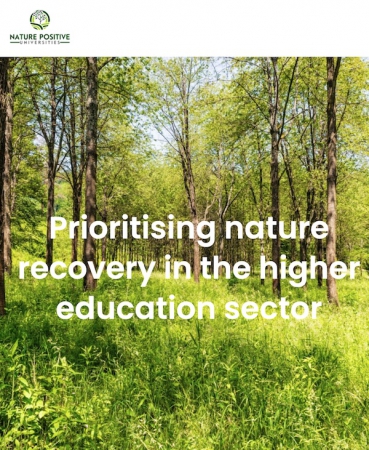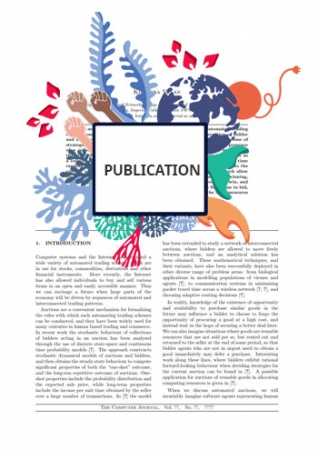The project aims to establish a central hub at Oxford University to harness its considerable potential and expertise, collaborating with national and international partners in ecology, finance, economics, social sciences, human wellbeing, cultural values, and satellite-based monitoring. This hub will serve as a focal point for convening discussions, disseminating crucial issues, fostering collaboration across the university’s diverse disciplines and external partners, and acting as a unified engagement point for dialogue with local, national, and international governments, stakeholders, and collaborators.
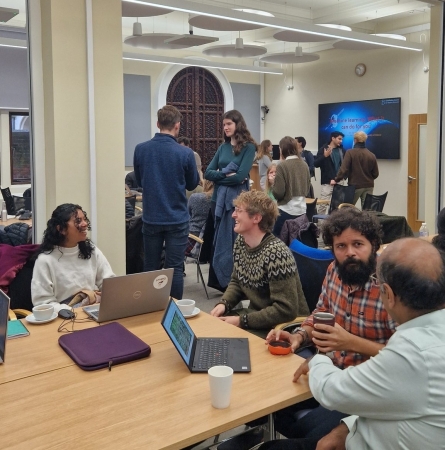
Biodiversity coffee mornings at the Oxford Martin School
Fostering synergies and collaborations across Oxford University
The Leverhulme Centre for Nature Recovery (LCNR) and the Biodiversity Network have been actively involved in hosting a weekly co-working space at the Oxford Martin School. This initiative aims to create an open and collaborative environment, providing researchers from various departments an opportunity to meet, network, and explore potential synergies for collaboration. The format allows researchers to present short, informal talks and spark lively discussions among participants.
Over the 2023-24 academic year, the informal presentations covered a wide array of topics, reflecting the diverse research interests within the Biodiversity Network. Topics ranged from Biodiversity Net Gain, the future of cultured meat, and blue carbon to the Oxfordshire Treescapes programme, connectivity modelling, biodiversity surveys, and discussions on chimp programs, butterflies, sustainable healthcare, nature restoration in UK cities, fungal networks, and highlands rewilding. Furthermore, the sessions consistently attracted an average of 45 researchers each week from across various departments including Biology, Geography, Anthropology, Psychiatry, Economics, Politics and English.
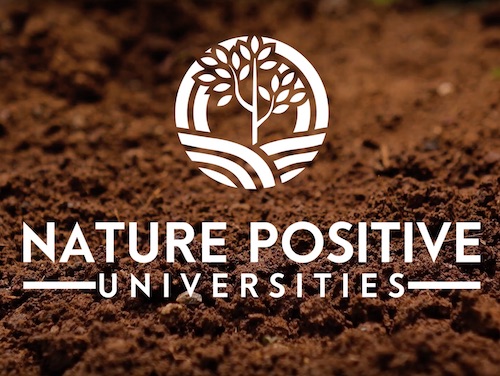
The Nature Positive Universities Alliance is a global network of universities prioritising nature restoration.
Nature Positive Universities
The University of Oxford in collaboration with UNEP has launched a global network in order to prompt prioritising nature restoration within the higher education sector; in their operations and supply chains, on campuses and within our cities. This network will form a major contribution to the UN Decade of Ecosystem Restoration and the Sustainable Development Goals.
Universities have a substantial role to play in moving urgently from degrading nature to restoring it: our students are our future leaders, we create knowledge and thinkers and directly impact the planet as land owners and consumers. Uniting universities for ecosystem restoration has an impact on the wider community and beyond.
To date, approximately 500 universities from 115 different countries have signed up to join the network. We are now working together to set ambitious targets for nature, complete baseline assessments of biodiversity impacts, prioritise actions for nature using the Conservation Hierarchy 4Rs (Refrain, Reduce, Restore & Renew) and use our influence to promote nature recovery within our communities.
Do you want to get involved? For more information: Alliance of Nature-Positive Universities
Oxford Nature Conversation: A Citizen’s Jury for People & Nature
The Biodiversity & Society Programme, in collaboration with the Leverhulme Centre for Nature Recovery and the AGILE Initiative, is launching an innovative pilot project to explore community engagement through a deliberative democracy approach, with a strong emphasis on inclusivity and equity.
New approaches are urgently needed to design policies and actions that address the twin crises of climate change and biodiversity loss—issues that affect every aspect of society and daily life. Deliberative democracy offers a promising path forward by facilitating informed discussions among citizens to develop recommendations on complex topics such as land use for housing, energy, infrastructure, climate mitigation, and nature conservation.
Over two weekends in February, residents of Oxford will convene to exchange ideas about how to ensure nature thrives in Oxford’s neighbourhoods and across the city. Through this process, participants will engage with the central question: How can people and nature thrive together in Oxford?
By tapping into the place-based knowledge, values, and visions of local residents, the project seeks to generate practical and meaningful recommendations for fostering a city that prioritises both people and nature. Participants will also be guided by a range of experts specialising in biodiversity, equity, access to green spaces, health, and among others. These experts will deliver concise presentations to support the group in shaping informed, impactful recommendations. The project aims to influence not only local policymakers but also other key stakeholders identified during the process. To ensure a wide-reaching impact, a report will be produced to capture the outcomes, and a broader dissemination event will be organised to share findings with residents, academics, councils, NGOs, and other interested groups.
Questions?
For questions, please get in touch with Melissa Felipe (melissa.felipecadillo@biology.ox.ac.uk) or E.J. Milner-Gulland (ej.milner-gulland@biology.ox.ac.uk).
